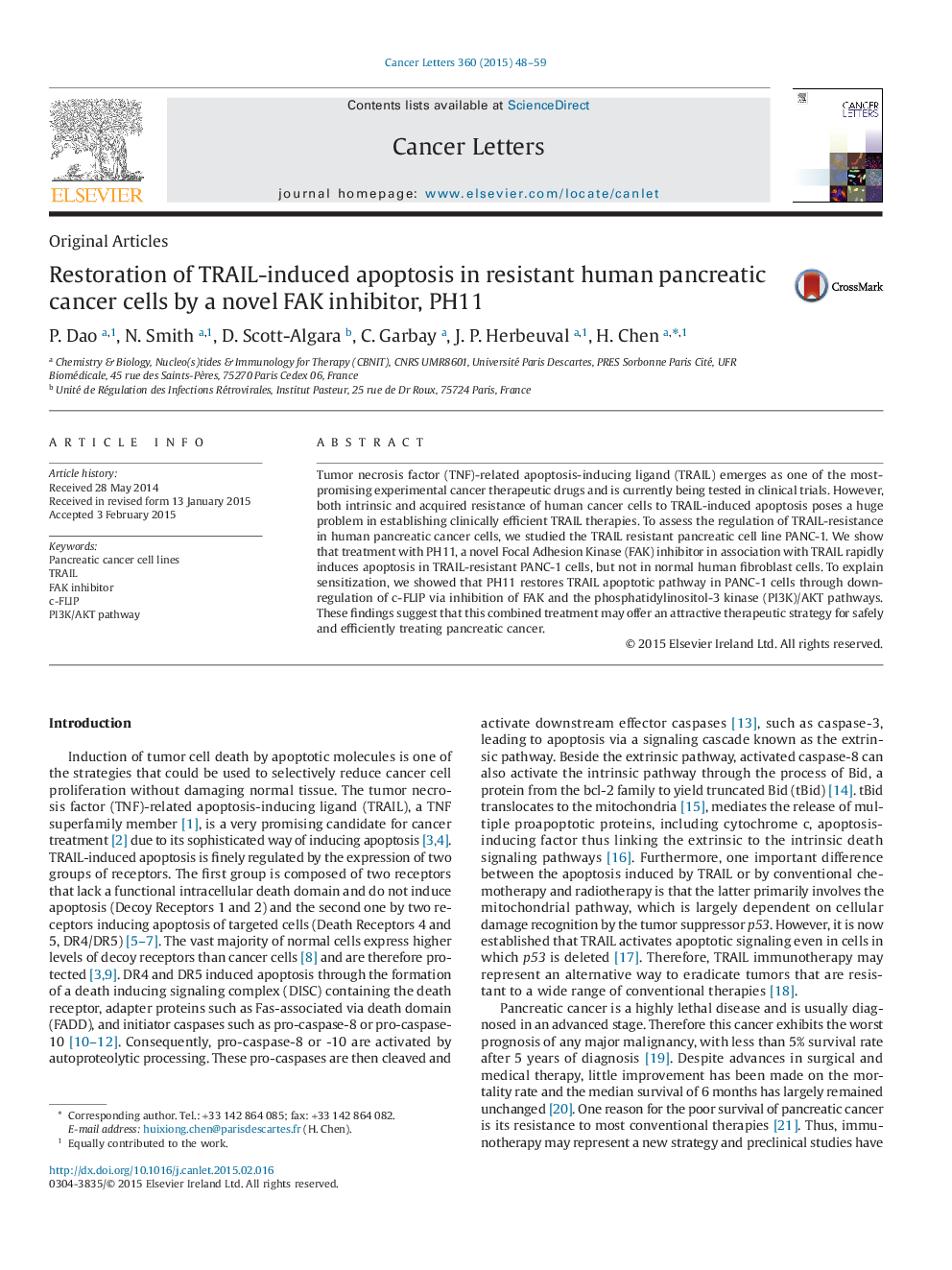| Article ID | Journal | Published Year | Pages | File Type |
|---|---|---|---|---|
| 2112497 | Cancer Letters | 2015 | 12 Pages |
Tumor necrosis factor (TNF)-related apoptosis-inducing ligand (TRAIL) emerges as one of the most-promising experimental cancer therapeutic drugs and is currently being tested in clinical trials. However, both intrinsic and acquired resistance of human cancer cells to TRAIL-induced apoptosis poses a huge problem in establishing clinically efficient TRAIL therapies. To assess the regulation of TRAIL-resistance in human pancreatic cancer cells, we studied the TRAIL resistant pancreatic cell line PANC-1. We show that treatment with PH11, a novel Focal Adhesion Kinase (FAK) inhibitor in association with TRAIL rapidly induces apoptosis in TRAIL-resistant PANC-1 cells, but not in normal human fibroblast cells. To explain sensitization, we showed that PH11 restores TRAIL apoptotic pathway in PANC-1 cells through down-regulation of c-FLIP via inhibition of FAK and the phosphatidylinositol-3 kinase (PI3K)/AKT pathways. These findings suggest that this combined treatment may offer an attractive therapeutic strategy for safely and efficiently treating pancreatic cancer.
